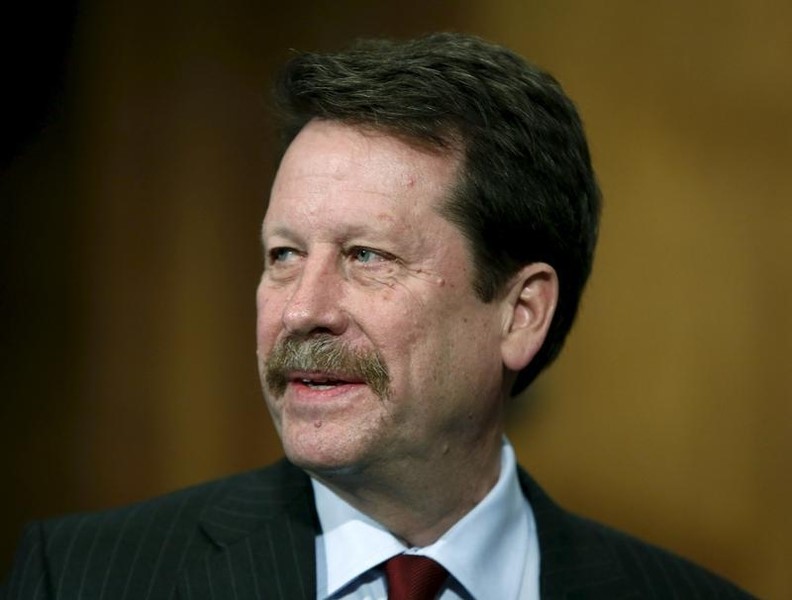By Toni Clarke
(Reuters) - President Barack Obama's nominee to lead the Food and Drug Administration, Dr. Robert Califf, won backing from a Senate committee on Tuesday as its members shrugged off criticism from consumer watchdogs that he is too closely linked with the pharmaceutical industry to lead the agency impartially.
The Senate Committee on Health, Education, Labor and Pensions voted to confirm Califf as FDA Commissioner, a position that has been open since Dr. Margaret Hamburg stepped down last February.
The nomination must now be approved by the full Senate. He is widely expected to be confirmed.
Republican Senator Lisa Murkowski of Alaska voted in favor of moving the nomination to the full Senate, but repeated a threat to oppose it if the FDA does not satisfy her demand for mandatory labeling of genetically engineered salmon.
Bernie Sanders of Vermont, who is running as a Democratic presidential candidate, voted by proxy against the nomination, saying in a statement that the FDA needs a leader "who is prepared to stand up to the drug companies" and that Califf is not that person.
"His extensive ties to the pharmaceutical industry give me no reason to believe that he would make the FDA work for ordinary Americans, rather than pharmaceutical industry CEOs who are more focused on making obscene profits than saving lives," he said.
Califf joined the FDA a year ago as a deputy commissioner. He is a prominent cardiologist who previously held senior positions at Duke University where he founded a large academic research center that received more than half of its funding from the drug industry.
He has also led multiple large-scale company-funded clinical trials and published more than 1,200 papers. His interest in streamlining the clinical trial process dovetails with those of patient groups and members of Congress who are eager to see new drugs brought to the market faster.
The U.S. House of Representatives has passed a bill known as the 21st Century Cures Act that among other things would require the FDA to further loosen its clinical trial requirements. A similar bill is being considered in the Senate.
However, consumer watchdogs argue the emphasis on speed risks sacrificing patient safety. Public Citizen says the Senate should reject Califf and nominate someone "better suited to protect public health."
In 2015 the agency approved 45 new drugs compared with an average of 28 a year during the previous nine years.
In a blog post earlier this month the agency said 60 percent of its drug applications were reviewed and approved on some sort of accelerated time-line and 64 percent of all new drugs were approved in the United States before any other country.

The FDA also regulates food, dietary supplements, tobacco and cosmetics. The agency is in the midst of implementing sweeping new food safety rules and is expected to issue a new rule this year giving it authority over the burgeoning e-cigarette industry.